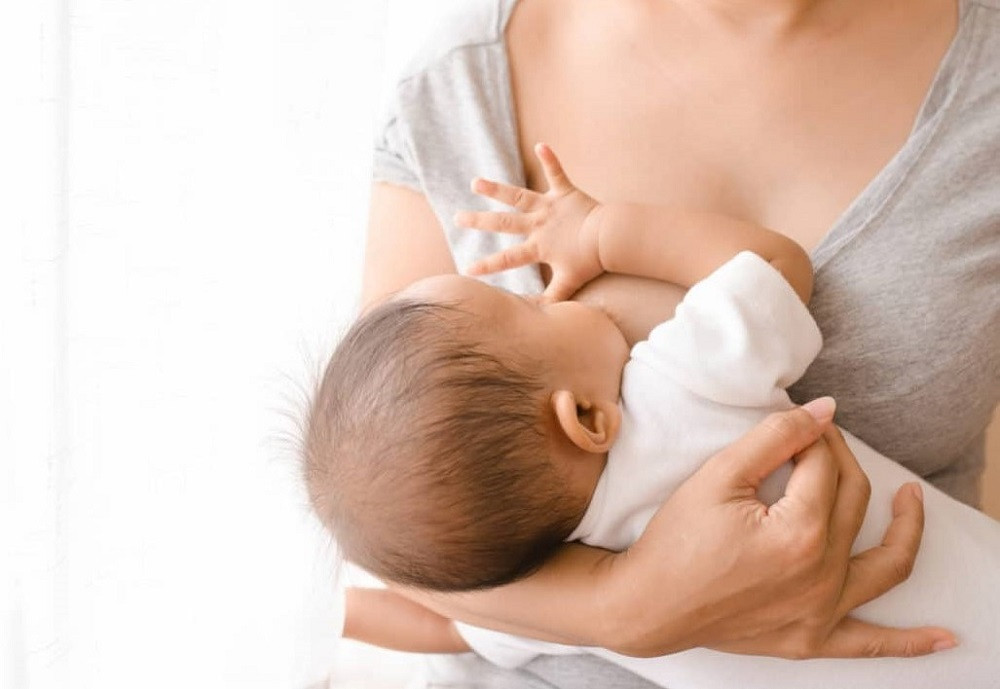Should mothers with hepatitis B breastfeed?
To date, there is no conclusive evidence that hepatitis B virus is transmitted through breast milk. However, if the baby is properly protected from infection, breastfeeding does not increase the risk of infection.
According to Dr. Phan Thi Huyen Thuong,Maternity HospitalHanoi, Hepatitis B is a dangerous disease that can cause cirrhosis, liver cancer and death. Every year, over 1 million people die from this disease worldwide. The latest statistical report shows that the prevalence rate of Hepatitis B in Vietnam is currently about 8%.
Hepatitis B virus is transmitted through 3 ways: blood, sexual intercourse and from mother to child. In which, the risk of transmission to the child of an infected mother is up to 90%. When the baby is infectedhepatitis B virusFrom the mother, the rate of progression to chronic hepatitis is very high (95%), of which 25-50% develop cirrhosis and liver cancer, affecting the health and life of the patient.
Doctor Phan Thi Huyen Thuong informed that studies have shown that there are three main ways of transmitting hepatitis B virus from mother to child.
The first is blood and fluid when the placenta is damaged during labor, invasive procedures in prenatal diagnosis (amniocentesis, chorionic villus sampling) or during pregnancy, the mother shows signs of infection.
Second, the virus is transmitted transcellularly by passing through the mother's blood circulation, passing through the placenta, and then into the baby.
Third, the virus can be transmitted through genes, it is thought that egg and sperm cells previously infected with hepatitis B will be transmitted to the embryo.
Regarding many opinions that hepatitis B virus can also be transmitted through breast milk, Dr. Thuong shared that, to date, there is no sufficient evidence to confirm the presence of HBsAg, HBeAg and HBV DNA in breast milk (antigens that confirm hepatitis B infection) increasing the risk of infection in newborns and young children.
However, it has been shown that, if the baby is properly protected against infection, breastfeeding (even if the mother has hepatitis B) does not increase the risk of the baby being infected with the disease.
 |
| Should mothers with hepatitis B breastfeed? |
Preventive strategies recommended for mothers confirmed to have hepatitis B include vaccination, antiserum prophylaxis, and antiviral medication.
Doctor Thuong emphasized, if only usingVaccineVaccination of babies whose mothers have hepatitis B still has a 30% chance of them getting infected. If the vaccine is combined with an antiserum injection within 12 hours of birth, the baby will be 90% protected, but there is still a 10% chance of getting hepatitis B. These cases are mostly due to the mother having a high viral load in her blood.
However, if we combine all three of the above prevention options, we can reduce the baby's chance of infection by 96-98%.
Regarding antiviral drugs, Dr. Thuong said that the current recommended treatment period for pregnant women with hepatitis B is from 28 to 32 weeks of pregnancy. Studies around the world have shown that this is a fairly safe and effective period. With some studies suggesting that treatment should be given earlier, in the first 3 months, according to Ms. Thuong, to make recommendations, there needs to be more strong clinical evidence.

